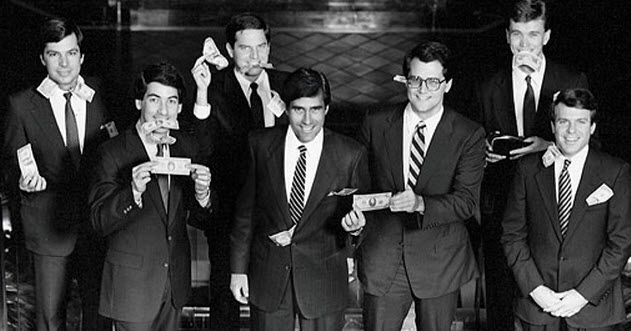Thomas Piketty is a capitalist, which might surprise some. The French economist simply believes the system is a driving force of wealth inequality if left unfettered and must be constantly treated, like a patient prone to fever. In a Financial Times piece by Anne-Sylvaine Chassany, Piketty discusses the development of his ideas. An excerpt:
Piketty says his interest in inequality crystallised after the collapse of the Berlin Wall and the first Gulf war. He recalls visiting Moscow in 1991 and being struck by “the lines in front of shops”. He came back vaccinated against communism — “I believe in capitalism, private property, the market” — but also with a question central to his work: “How come those people had been so afraid of inequality and capitalism in the 19th and 20th century that they created such a monstrosity? How can we tackle inequality without repeating this disaster?”
The first Gulf war, he believed, demonstrated the cynicism of the west: “We are told constantly that states can’t do anything, that it’s impossible to regulate the Cayman Islands and the other tax havens because they are too powerful, and all of a sudden we send a million soldiers 10,000km from home to allow the emir of Kuwait to keep his oil.”
I am halfway through the now tepid bolognese when I ask him why his work had such an impact in the US without causing anything like such a stir in France at the time of its original publication. Piketty says he caught American attention in 2003 when, together with Emmanuel Saez, a fellow French economist who teaches at the University of California, he first compiled historical data on the US’s wealthiest people. In 2009, newly elected President Obama used the French economists’ graph that showed inequality was back to its 1929 peak. “We became the target of Republican think-tanks,” he recalls. The French version of the book acted as a teaser to those critics, he believes, helping propel it to the top of Amazon’s bestseller list for three weeks when it was released in English.
“The rise of the top 1 per cent is an American thing. It’s not by chance that Occupy Wall Street happened in Wall Street, and not in Brussels, Paris or Tokyo,” he says. “It’s different in Europe. Here, inequality takes the form of unemployment and public debt.”
Though Piketty concedes that the global wealth tax he recommends is a “utopian” dream, he also says a confiscatory tax rate of more than 80 per cent on earnings exceeding $1m would work.•



